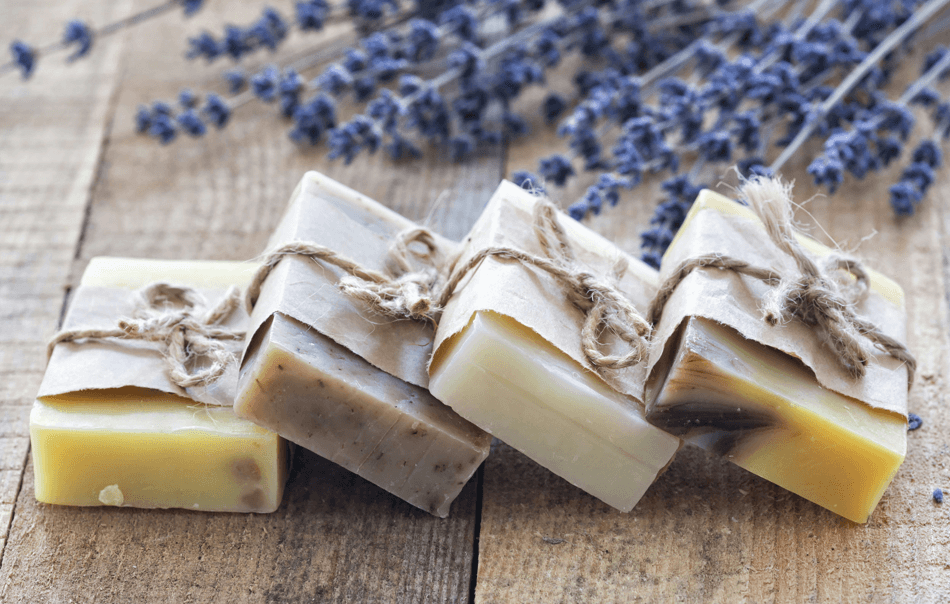Niacinamide vs Hyaluronic Acid: The Ultimate Skincare Showdown

Key Takeaways:
- Understand the distinct benefits of niacinamide and hyaluronic acid for various skin types.
- Learn how to incorporate both ingredients into your skincare routine for maximum benefits.
- Discover the science behind how these ingredients work to promote a radiant and youthful complexion.
Skincare enthusiasts often find themselves at a crossroads when choosing between the myriad of ingredients available in the market. Two such powerhouse ingredients that frequently come up in conversations are niacinamide and hyaluronic acid.
While both are celebrated for their skin-loving benefits, they serve different purposes. This article delves into the specifics of niacinamide vs hyaluronic acid, helping you understand which might be best suited for your skin concerns.
What is Niacinamide?
Niacinamide, is a form of vitamin B3 and is essential for converting nutrients into energy and repairing DNA. It is a water-soluble vitamin that plays a pivotal role in maintaining a healthy skin barrier and cellular metabolism.
Niacinamide's ability to boost collagen production and restore natural lipids helps improve the appearance of enlarged pores, uneven skin tone and overall skin texture.
Its antioxidant properties also protect against environmental stressors, making it a superhero ingredient for those living in urban areas with higher pollution levels.
Its versatility allows it to be beneficial for all skin types, including even sensitive skin, without causing irritation.
Addressing Uneven Skin Tone with Niacinamide
Niacinamide is effective in tackling uneven skin tone and hyperpigmentation. It works by inhibiting the transfer of pigment within the skin, which can help in reducing the appearance of dark spots and acne scars, leading to a more even complexion.
Niacinamide for Acne-Prone and Oily Skin
Individuals with acne-prone or oily skin may find niacinamide particularly beneficial. It works to regulate excess sebum production and can help reduce the occurrence of breakouts.
Niacinamide's anti-inflammatory properties also make it ideal for soothing irritated skin and improving its overall texture.
The Role of Niacinamide in Skin Elasticity
Niacinamide is not just about controlling oil; it also plays a crucial role in boosting collagen production. Collagen is vital for maintaining the skin's elasticity and firmness. By promoting healthy skin cells and connective tissues, niacinamide helps in keeping the skin taut and youthful and slows the effects of aging.
Niacinamide for a Radiant Complexion
Niacinamide is not only about treating skin issues; it's also about enhancing the skin's natural radiance. By improving the skin's barrier function and reducing inflammation, niacinamide helps to reveal a more radiant complexion.
The Power of Hyaluronic Acid
Hyaluronic acid occurs naturally in the human body, and is known for its exceptional capacity to retain moisture.
It acts as a humectant, drawing water into the skin cells, ensuring the skin stays hydrated and plump. This ability makes hyaluronic acid a go-to ingredient for those looking to combat dryness and achieve a supple skin texture.
Hyaluronic Acid: The Ultimate Skin Hydrator
The level of hydration hyaluronic acid provides cannot be overstated. It acts as a powerful humectant, drawing water into the skin and locking it in.
It's ability to hold up to 1000 times its weight in water makes hyaluronic acid work wonders for keeping skin hydrated and giving it a plump, youthful appearance and can even improve skin elasticity over time. This can lead to a reduction in the appearance of wrinkles and fine lines.
Although it is naturally produced by the body, adding a hyaluronic acid product to your skincare routine can significantly enhance skin hydration, especially for those with dry skin.

Hyaluronic Acid and Skin's Moisture Barrier
Hyaluronic acid's ability to enhance the skin's moisture barrier is another key benefit.
By retaining moisture and preventing transepidermal water loss, hyaluronic acid helps to maintain the skin's barrier function, which is essential for protecting against pollutants and other harmful external factors.
It also prevents free radicals from causing oxidative stress, which can lead to premature aging.
By improving skin texture and providing a cushioning effect, hyaluronic acid ensures that your complexion remains supple and radiant. It's a must-have ingredient for anyone aiming for anti-aging effects or simply wanting to maintain a dewy, hydrated look.
How to Apply Hyaluronic Acid for Best Results
To get the most out of hyaluronic acid, it should be applied to damp skin. This ensures that the hyaluronic acid can lock in the moisture, providing intense hydration.
It's often recommended to use a hyaluronic acid serum as part of both your morning and evening skincare routines.

The Versatility of Hyaluronic Acid
Hyaluronic acid is incredibly versatile and suitable for all skin types, including sensitive skin. It's gentle yet effective, making it a staple ingredient in many skincare products aimed at providing hydration without irritation.
Hyaluronic Acid for Dry and Aging Skin
For those with dry or aging skin, hyaluronic acid is a boon. Its intense hydration properties help to reduce the appearance of fine lines and wrinkles, promoting a more youthful complexion.
By helping the skin retain moisture, hyaluronic acid ensures that the skin remains hydrated throughout the day.
Combining Niacinamide and Hyaluronic Acid
Niacinamide works to restore natural lipids and repair the skin barrier, while hyaluronic acid provides the hydration needed to keep the skin looking radiant.
Using a niacinamide serum followed by a hyaluronic acid serum can provide comprehensive skincare benefits.
The Dynamic Duo: Hyaluronic Acid and Niacinamide for Age-Defying Skin
The beauty of both niacinamide and hyaluronic acid is that they can be used together in a skincare routine.
When it comes to anti-aging effects, the combination of hyaluronic acid and niacinamide is a force to be reckoned with.
When used together, hyaluronic acid and niacinamide not only provide intense hydration but also fortify the skin's defenses against environmental damage, ensuring that your skin remains vibrant and resilient.
This synergistic effect makes them a must-have in any skincare regimen aimed at preserving a youthful and radiant glow.
Summary
In the niacinamide vs hyaluronic acid debate, it's clear that both ingredients offer unique benefits that can cater to a variety of skin concerns.
Niacinamide is excellent for controlling oil, reducing acne, and improving the skin's barrier function, while hyaluronic acid is the ultimate hydrator, keeping the skin plump and minimizing signs of aging.
For the best results, incorporating both ingredients into your skincare routine can lead to a healthier, more youthful complexion.
FAQ Section
Q: What are the benefits of using niacinamide with hyaluronic acid?
Niacinamide, known for its brightening and anti-inflammatory properties, works well with hyaluronic acid, which is a powerful hydrator. Together, they can help improve skin texture, reduce the appearance of fine lines, and enhance skin barrier function.
Q: Can niacinamide and hyaluronic acid be used together in a skincare routine?
Absolutely! Niacinamide and hyaluronic acid can be used together effectively. They complement each other in addressing skin hydration and texture, making them a great duo for a variety of skin types.
It's recommended to apply niacinamide first to help repair the skin barrier and then follow up with hyaluronic acid for hydration.
Q: Is niacinamide or hyaluronic acid better for acne-prone skin?
Niacinamide is generally better for acne-prone skin as it helps regulate oil production and has anti-inflammatory properties. However, hyaluronic acid can also be beneficial for acne-prone skin by ensuring it stays hydrated without clogging pores.
Q: How often should I use niacinamide and hyaluronic acid?
Both niacinamide and hyaluronic acid can be used daily, typically once in the morning and once in the evening. They are both gentle and beneficial for regular use. Always follow the instructions on your specific skincare products for the best results.
Q: Are there any skin types that should avoid using this combination?
This combination is generally safe for all skin types. However, if you have extremely sensitive skin or are prone to allergies, it's always wise to patch test first or consult with a dermatologist.
Q: Can I use other skincare products or actives with this combination?
Generally, yes. However, be cautious when combining with strong actives like retinoids or high concentrations of Vitamin C. It's best to stagger their application (e.g., one in the morning and the other in the evening) to avoid potential irritation.
Q: How long does it take to see results from using niacinamide and hyaluronic acid together?
While some immediate effects like hydration can be noticed almost immediately, it may take several weeks to observe significant changes in skin texture and tone.
Q: Are there any side effects of using niacinamide and hyaluronic acid together?
This combination is usually well-tolerated with minimal side effects. However, as with any skincare products, some individuals may experience mild irritation or sensitivity.
Q: Should I apply sunscreen when using these ingredients during the day?
While niacinamide and hyaluronic acid don't increase sun sensitivity, using sunscreen is a crucial step in any skincare routine, especially to protect against UV damage and to maintain the benefits of your skincare products.





